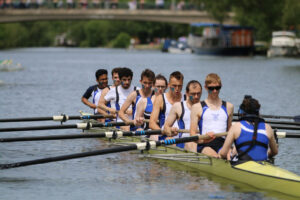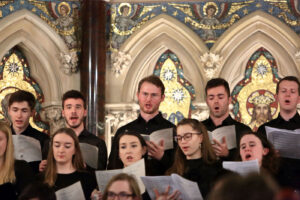Joining the Group
Willkommen, 歡迎光臨, Bienvenido, स्वागत हे, Selamat datang, أهلاً و سهلاً, Добро пожаловать, Vítejte, ようこそ
Openings
We are currently advertising a D.Phil. studentship. More Details.
You
We are interested in working with scientists, engineers, and thinkers who share a curiosity about the world, and want to contribute to building its future. Our group members and collaborators come from all kinds of backgrounds, and have aspirations that range from pure scientific discovery to entrepreneurial success.
Our group’s interdisciplinary research can mesh with many technical skill-sets. In particular, we are keen to work with people with expertise in biological disciplines (biochemistry, bacteriology, evolution, systems/synthetic biology), engineering (control, automation, electrical, robotics), mathematics (biomath, stochastic processes, statistics), computer science (AI/ML) and many more beyond this list. In past cases people have joined the group with backgrounds in one or some of these areas and have soon found themselves expanding into others – we are glad to support this. Similarly some have arrived with a project already in mind – which we can work together to develop – whilst others have found success by building upon existing work in the group. We are interested in working on challenges beyond the topics outlined on the research page, so long as they are exciting!
Contact
If you are interested in joining/working with our group then please email harrison.steel AT eng.ox.ac.uk and include the code “p3&w” somewhere in your email subject line. Using this code will direct your email to a specific mailbox for inquiries, ensuring that I see and reply to it quickly. Attaching a CV, links to LinkedIn/Google Scholar profiles (if you have them), and a message that hasn’t been obviously copy-pasted to 15 other research groups will help your case.
Below I will try to set out (beyond the exciting research!) why you might want to work with our group at Oxford, and outline some paths to doing so depending on where you are coming from.
Please note that the information below does not represent official policy or advice of the University of Oxford. Rather, it is my (Harrison’s) personal opinion derived from my experience at the university, as well as my path to arriving here (perhaps similar to yours – I moved to Oxford from Australia in 2016 not knowing a single person at, or who had graduated from, the university!)
Why our group?
Though our research interests alone might be enough to motivate you, the skills, enjoyment, and personal growth one takes away from a research degree/position/internship depend upon far more than the topic of study and papers published. Consequently we hope to help each team member more broadly, in finding their way during their time at Oxford, and using this experience to support their future success – whether in academia or beyond.
We try to tailor each individual’s experience to their own goals and strengths. Some want to spend their days in the library focusing on theoretical problems, whilst others prefer hands-on experimental work, building things, or even pursuing entrepreneurship – research programs can be tailored to each case. Some students like to work independently and set their own schedule, whilst others prefer a team environment – again we can accommodate both. Similarly some members wish to collaborate across departments and research fields, or may only be able to work specific hours (e.g. due to family commitments) – we can organise research projects to suit each case. Ultimately, if you are a member of our team then we are committed to supporting you to make the most of your time at Oxford (in the lab and out of it – see below!).
Why Oxford?
Though Oxford frequently tops world university rankings, its excellence in research is only one factor among many that has led to its enduring success. Another major draw is the high quality and format of teaching at the University: Engineering undergraduates benefit from a combination of lectures, laboratories, research projects, and tutorials (weekly teaching sessions run by fellows for small groups of one to three students). Graduate students (e.g. D.Phils) also benefit from personalised support, and as a result typically complete their studies within three to four years. Another unique selling point is the University’s collegiate system – all students are members of a college (as can be postdocs – though it requires a specific application), which provides a home away from home that can provide accommodation, food, and plenty of organised fun. Each college hosts a mix of students from different subjects and backgrounds, which leads to many interesting discussions and unlikely friendships, as well as interdisciplinary research collaborations. Beyond the colleges there are many clubs and societies, which are again open to all members of the university. This makes it common to see graduate and undergraduate students singing together in choirs, representing the University in sport, or debating in public forums.
If there is a key takeaway from this spiel (and that would be assuming a lot) it is that coming to Oxford means joining a world leading research community, but also a community that helps its members to flourish in other areas of their life – whatever they may be. And I shouldn’t forget to say, it also means wearing silly outfits and living among historic and spectacular buildings (plus the tourists they attract) – some pictures below!
Graduate Students
There are many routes to studying with our group as a graduate student. Typical paths include applying directly to the Department of Engineering Science for a D.Phil/M.Phil course (and in your application naming our group as your desired destination), or applying to one of the University’s Doctoral Training Programs (DTPs) that has some overlap with our work and then joining our group after your first year of courses and rotation projects. There is no one-size-fits-all approach, and different paths may better fit different candidates. For example, the DTP programs are great for students that want to try a few different research areas to begin (which happens during their first year courses and short projects), whereas direct-entry D.Phils will typically go straight into their research. Regardless of the route you take, if you are hoping to apply we would be glad to talk to you, and may be able to offer advice for this process (e.g. feedback on program/scholarship applications).
A major challenge faced by prospective graduate students at Oxford is securing funding to cover living expenses and (particularly for non-UK students) course fees. For up-to-date information from the University on fee levels and regulations (e.g. who is classified as a home vs international student) see here. Typically students fund their studies via one or a combination of governmental support (particularly UK students), industrial support, personal savings/resources, and scholarships. For many international students scholarships are the most common route to Oxford (I – Harrison – took this path thanks to Australia’s General Sir John Monash Scholarship), and the University provides a centralised listing here (as well as a search-engine) to help prospective candidates identify scholarships that they may be eligible for. The university’s scholarship database is, however, far from complete, particularly in the case of international students. If you are coming from abroad I would recommend also investigating scholarships offered by your country to its own citizens to fund overseas study, other charitable scholarships specific to your country (e.g. Commonwealth Scholarships), and it is also worth looking at what your past (i.e. undergraduate) institution/s might have on offer – perhaps counter intuitively many universities fund their alumni to study graduate degrees elsewhere!
Undergrads
If you are a current undergraduate at Oxford there are also many ways you can work with us. Each year we typically take on one or two 4YP (Fourth Year Project) students from Engineering – if you are a current 3rd year hoping to work with us on such a project then please get in touch so that we might tailor one to your interests. For other undergraduates (in different years, or departments) another option is summer research projects (anything from about 4 to 12 weeks), for which there may be possible funding available (sometimes from research councils, or departmental/college schemes).
If you are a prospective undergrad and currently thinking about applying to Oxford – do it! Don’t worry too much about what (for example) The Daily Mail says about student life here: I went to middle-of-the-road state schools my whole life, and had no friends at Oxford before I came to study, and yet I found my place and had a fantastic time. If you are worried about the application process / fitting in / life at Oxford then please reach out, to me or to the huge number of people across the University who are working tirelessly to improve access and support diversity – they/we would be glad to help.
Postdocs / Fellowships
Postdoctoral positions funded by grants awarded to my own group (and collaborators) will be advertised here, and also on the Research section of the University jobs website. If you are very keen to join the group as a postdoc but no openings are listed, please get in touch!
If you have or wish to apply for an academic Fellowship of any variety, and would like to work/collaborate with our group, then we would also be glad to hear from you. There are many sources of such funding – I won’t discuss country-specific schemes as there are too many to list, but some that may fund those interested in coming to Oxford include: Junior Research Fellowships (JRFs) associated with Oxford colleges – these are open to early-career researchers (with a PhD/D.Phil), they typically fund independent research for up to three years, and most are advertised here; EPSRC (Engineering and Physical Sciences Research Council) fellowships which are currently available in several areas related to our group’s work including Synthetic Biology; various UKRI fellowships; Sir Henry Wellcome Postdoctoral fellowship. Other fellowship funding bodies available in the UK that may be of interest include the Royal Commission for the Exhibition of 1851, Marie Skłodowska-Curie Fellowships, The Royal Society, The Royal Academy of Engineering, the Wellcome Trust, and the Leverhulme Trust.
Academic Visits
If you are currently an academic, researcher, or student at another institution/company and wish to work with our group for a short time (e.g. a summer research internship as part of a PhD program elsewhere) we may be able to host you if we have capacity at that time. Please get in touch so that we can discuss your research interests and any possible support.
Everyone Else
If you are a school student wanting to see what the inside of a science lab looks like, a journalist hoping to get a scoop on interesting research, a startup founder that wants to bounce some ideas around, or anyone else in between, please contact us and we will see what we can do together.








